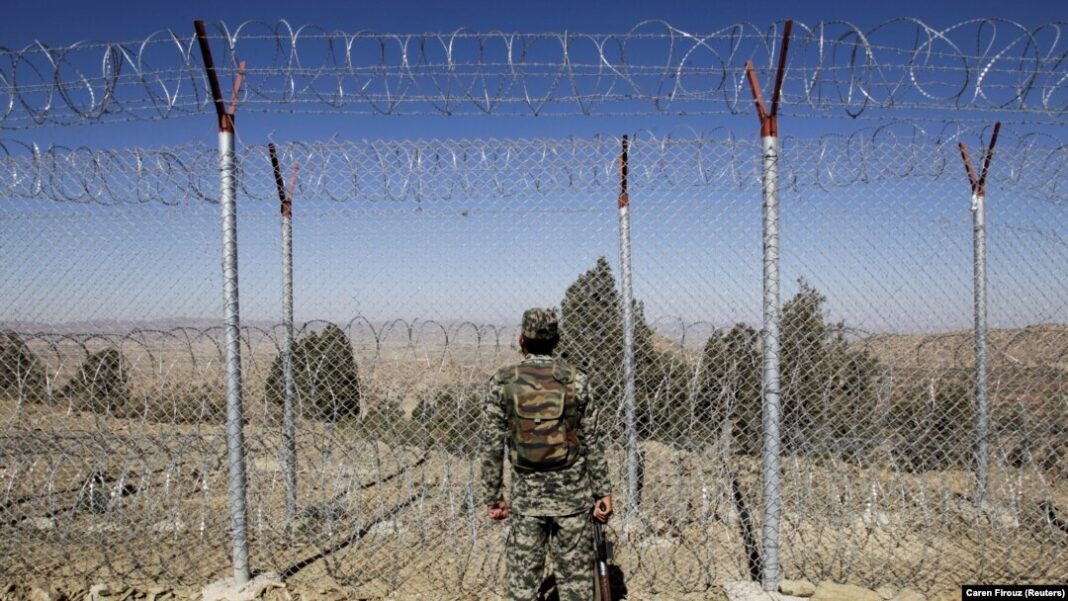Pakistan and Afghanistan are sticking to their known standpoints on disputes in their complex bilateral relationship as violence directed at the civilian population spreads on both sides of the border.
Both the sides are in denial mode accepting that they are responsible for the recent explosions which ultimately caused the lives of the common people.
“Neither side accepts the Islamic State-Khorasan being behind this violence, indeed, its very presence, that is spreading deeply and extensively. While Kabul denies that its territory is being utilized by any external force to spread violence, the Foreign Office in Islamabad FO, in a statement, last week recalled that Pakistan had repeatedly requested the Afghan government over the last few months to secure the Pak-Afghan border region,” Islam Khabar said.
According to Dawn newspaper, IS-K for initiated violence in Kabul, Mazaar-e-Sharif and other places across Afghanistan, but also the Tehreek-e-Taliban Pakistan (TTP), Pakistan’s own rebels, for “ratcheting up” killings in North Waziristan and other places on the Pakistan side.
Notably, Afghanistan’s acting Prime Minister Mullah Mohammad Hassan Akhund reportedly said that Kabul is not sheltering any force that can cause problems for Islamabad and that dealing with the Tehreek-e-Taliban Pakistan (TTP) is Islamabad’s “internal matter.”
This is tantamount to yet another rejection of Pakistan’s repeated pleas, even pressures that Kabul stop sheltering the TTP, whose cadres stage violent operations from the tribal areas on the Pak-Afghan border, according to Islam Khabar.
Kabul has rejected the Pakistani charge that terrorists were using Afghanistan soil against Pakistan through a Taliban commentary posted on Afghanistan’s official news agency Bakhtar.
The Taliban commentary said the “Islamic Emirate of Afghanistan rejects Pakistan’s claim and has repeatedly called on Pakistan to resolve any problems and misunderstandings through constructive dialogue to ensure greater security in the region.”
“Although the dilemma between the TTP and the Pakistani government is an internal matter, the IEA wants a healthy solution that benefits both the region and the people of Pakistan,” it further said.
Meanwhile, a weary Islamabad, taking cue from an aggressive United States and the world community, has for the first time pressed Kabul’s Taliban rulers to let their girls go to school.
Prominent Pakistani religious scholar Mufti Taqi Usmani has, in a letter addressed to Taliban chief Haibatullah Akhundzada, asked that girls’ schools be reopened. The significance lies in Pakistan using an ‘unofficial’ channel to address the Taliban supremo directly.
Usmani, Vice president of Darul Uloom Karachi and highly regarded among the Taliban, has said: “Girls’ education is currently an important issue which the enemy of the Islamic Emirate has used as a propaganda tool. We value the wise and wholehearted measures which the Islamic Emirate has taken so far. But we are of the view that it is necessary to make appropriate arrangements for girls’ education in accordance with Sharia,” Mufti Usmani.
The Taliban have by and large disregarded the demand for girls’ education and say nothing on the pleas for making their government ‘inclusive’ to include women and ethnic minorities. Analysts say this stance is unlikely to change.

